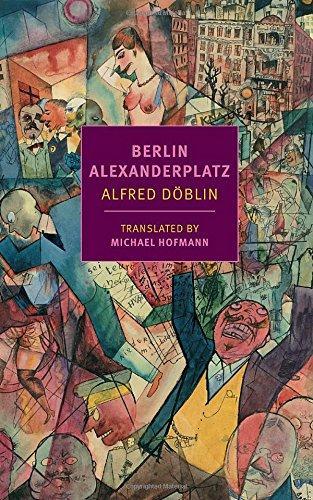lingua English
Pubblicato il 06 Marzo 2018

lingua English
Pubblicato il 06 Marzo 2018
In this translation of a harrowing and sprawling novel of 1920s Germany, the shifting fortunes of a man newly released from prison counterpoint the societal changes of the Weimar Republic. Döblin’s (1878–1957) first published the novel in 1929; it showcases the bitter underside of a society wracked by the aftermath of war and on its way toward totalitarianism. The story opens with protagonist Franz Bieberkopf being released from prison and heading to Berlin in hopes of finding a job. He ends up drifting between legal and illegal work, which bears a terrible toll on his body and sets in motion a series of tragic events. Periodically, Franz’s story pauses so that other characters can recount stories of their own, which sometimes echo and sometimes contrast with Franz’s circumstances. Hoffman’s translation moves seamlessly from the personal to the societal and back again, using Anglicisms (“Not if what I want’s the silk …
In this translation of a harrowing and sprawling novel of 1920s Germany, the shifting fortunes of a man newly released from prison counterpoint the societal changes of the Weimar Republic. Döblin’s (1878–1957) first published the novel in 1929; it showcases the bitter underside of a society wracked by the aftermath of war and on its way toward totalitarianism. The story opens with protagonist Franz Bieberkopf being released from prison and heading to Berlin in hopes of finding a job. He ends up drifting between legal and illegal work, which bears a terrible toll on his body and sets in motion a series of tragic events. Periodically, Franz’s story pauses so that other characters can recount stories of their own, which sometimes echo and sometimes contrast with Franz’s circumstances. Hoffman’s translation moves seamlessly from the personal to the societal and back again, using Anglicisms (“Not if what I want’s the silk coat, innit?”) that are sometimes jarring. A constant throughout the novel is a sense of political unrest: characters heatedly debate Marxism even as nationalism and anti-Semitism are rarely out of view, hauntingly anticipating the rise of Nazism. This is a damning portrait of violence both personal and societal, with a sense of something terrible on the horizon. (Mar.)